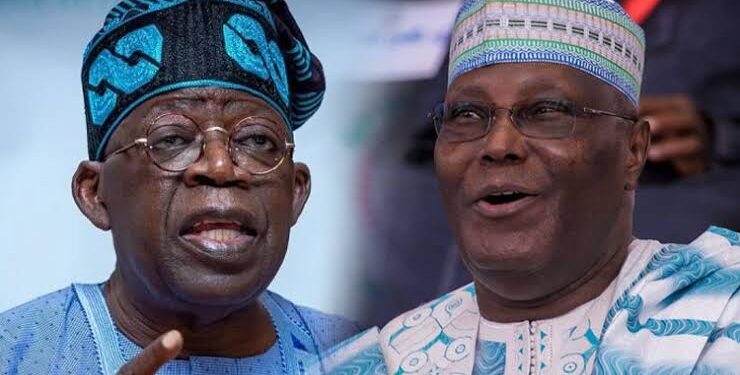In the ongoing appeals against the election of President Bola Tinubu, Justice John Okoro, the Chairman of the Supreme Court panel, has emphasized that Atiku Abubakar must substantiate the certificate forgery allegation beyond reasonable doubt.
Atiku, the Peoples Democratic Party standard-bearer in the February presidential election, is seeking to nullify Tinubu’s victory.
The crux of Atiku’s argument revolves around a U.S. court order demanding the release of academic records from Chicago State University, aiming to challenge the authenticity of Tinubu’s credentials.
Addressing the Supreme Court, Atiku’s lead counsel, Chris Uche, SAN, urged the court to admit this fresh evidence, emphasizing the weightiness and constitutional significance of the issue.
Uche stressed that the court, as a policy court, should look into Tinubu’s academic records without being hindered by technicalities.
However, Justice Okoro, while acknowledging the gravity of the matter, described it as criminal in nature, emphasizing that it must be proven beyond reasonable doubt.
The complexity deepens with conflicting letters from Chicago State University—one authenticating Tinubu’s certificate and another discrediting it.
During the proceedings, Justice Emmanuel Agim observed a potential procedural issue, noting that the deposition sought to be tendered as evidence was conducted in the chambers of Atiku’s lawyer, not in the courtroom.
This raises questions about the legal authority of such depositions and whether the documents were properly administered.
Akin Olujinmi, SAN, counsel to the All Progressives Congress, countered Atiku’s move, asserting that documents should not be allowed into the Supreme Court without prior submission at the trial court.
Olujinmi argued that the appeal lacked merit and should be dismissed outright.
As the legal battle unfolds, judgment on these critical matters remains reserved, leaving the political landscape in suspense.
The outcome will undoubtedly have significant implications for both the individuals involved and the broader political context in Nigeria.












